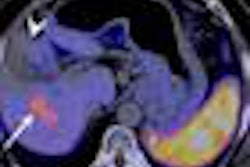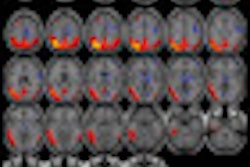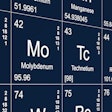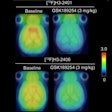GE Healthcare said that its electronic training program to teach interpretation of images from its F-18 flutemetamol investigational PET agent appears effective for inexperienced readers, based on data the company presented at the annual Human Amyloid Imaging (HAI) meeting in Miami.
In the study, five physician readers (three nuclear medicine physicians and two radiologists) who were inexperienced in amyloid imaging were trained with the program before reading F-18 flutemetamol image sets, blinded to patient information.
For the 135 patient images for which brain amyloid status was available, the physicians received high marks for sensitivity (94%), specificity (92%), positive predictive value (87%), and negative predictive value (96%), with interreader agreement of 81%, GE said.
PET imaging with F-18 flutemetamol has the potential to be part of a larger diagnostic workup for ruling out Alzheimer's disease by showing an absence of amyloid deposits in patients with reduced cognitive function, the company said.
Earlier this month, GE announced that regulatory bodies in the U.S. and Europe had accepted its marketing applications for F-18 flutemetamol for review.




















